NJ Teachers of English to Speakers of Other Languages/
NJ Bilingual Educators
ARTICLES
Editor: Lisa Rose Johnson- Falling into a New School Year!
President: Caia Schlessinger- Keeping Yourself Informed
Vice President and Conference Chair: Maggie Churchill- A Conference Must Live up to Its Name: Equity for Language Learners
Past-President: JoAnne Negrin- Sharing is Caring – How to Submit a Proposal for the Uninitiated or Unsure
Business Administrator: Gwen Franks- 2020 Spring Conference Registration
Business Administrator: Gwen Franks- NJTESOL/NJBE Membership
Business Administrator, Gwen Franks- CALL FOR POSTER SESSIONS
Socio-Political Representative: Elizabeth (BJ) Franks- Advocacy Corner
Exhibitor Liaison: Tina Kern- Responsible Teaching
WIDA Representative: Sonya Bertini- The Importance of Teaching Difficult History
Technology Coordinator: Marilyn Pongracz- Favorite Websites: Looking back to find what’s new
Guest Contributor: By Jeffrey Linn- What does “of” mean?
Special Interest Groups Articles: Fall 2019
From the Editor
Falling into a New School Year!
By Lisa Rose Johnson, Ed.D.
 It is hard to believe we are entirely into pumpkin spice and apple pie season. In early October, I had the opportunity to attend one of the two annual EdCamps. I attended the one at Stockton University. If you have not attended one of the NJTESOL/NJBE Edcamps, you must add it to your October calendar for 2020. It truly was a treat to learn from JoAnne Negrin, who went over the New Jersey Title III Bilingual/ESL Education website. JoAnne also shared how to access the NJ Bilingual Code, which is a must-read for everyone who works with students enrolled in ESL or Bilingual Programs. In addition to JoAnne, Ken Bond shared his knowledge and experiences from the classroom and working in Trenton. The event also allowed everyone to break bread and share their knowledge of using Google translate, and using music and robotics in the classroom.
It is hard to believe we are entirely into pumpkin spice and apple pie season. In early October, I had the opportunity to attend one of the two annual EdCamps. I attended the one at Stockton University. If you have not attended one of the NJTESOL/NJBE Edcamps, you must add it to your October calendar for 2020. It truly was a treat to learn from JoAnne Negrin, who went over the New Jersey Title III Bilingual/ESL Education website. JoAnne also shared how to access the NJ Bilingual Code, which is a must-read for everyone who works with students enrolled in ESL or Bilingual Programs. In addition to JoAnne, Ken Bond shared his knowledge and experiences from the classroom and working in Trenton. The event also allowed everyone to break bread and share their knowledge of using Google translate, and using music and robotics in the classroom.
Moving forward, NJTESOL/NJBE is already working hard to plan the Spring Conference. Many of the articles in this issue address the 2020 theme Equity for Language Learners. All of the information you need for the conference, including the call for proposals, can be found on the website. The website is available by clicking the blue Equity for Language Learners link above. In addition to information about the conference, many of the articles touch on the work of Ofelia Garcia who addresses the issue of translanguaging. If this a topic that is new to you, you might find this YouTube video to be helpful by clicking on the link: What is translanguaging, really? I personally found this topic to be enlightening for everyone in the field of ESL and Bilingual education. There are also many articles of interest from our SIG Representative and guest contributors. If you are interested in writing for Voices, we would love to share your work, so please reach out to me. Please be on the lookout for our winter edition as well.
References
New Jersey Bilingual Administrative Code (2019) https://www.state.nj.us/education/code/current/title6a/chap15.pdf. Retrieved on October 6, 2019.
New Jersey Title III Bilingual/ESL Education website (n.d.) https://www.state.nj.us/education/bilingual/. Retrieved on October 6, 2019.
What is Translanguaging Really? (2017). https://www.youtube.com/watch?v=iNOtmn2UTzI Retrieved on 9/20/19.
President
Keeping Yourself Informed
By Caia Schlessinger
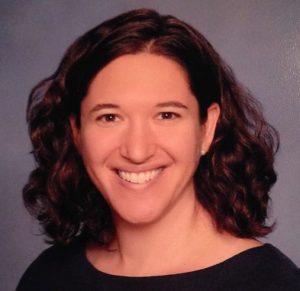 NJTESOL/NJBE is proud to offer our members an e-mail discussion list through which subscribers can read about employment opportunities, workshop and conference announcements, questions about state laws and standards, advice, best practices, material searches, testing questions, and advocacy. You must be a member of NJTESOL/NJBE to participate. Members can e-mail webmaster@njtesol-njbe.org to be signed on. Be sure to mention if you are a member of NJTESOL/NJBE. If you are not a member, please use the online form and payment method or download an application and send it in before asking to be put on the list.
NJTESOL/NJBE is proud to offer our members an e-mail discussion list through which subscribers can read about employment opportunities, workshop and conference announcements, questions about state laws and standards, advice, best practices, material searches, testing questions, and advocacy. You must be a member of NJTESOL/NJBE to participate. Members can e-mail webmaster@njtesol-njbe.org to be signed on. Be sure to mention if you are a member of NJTESOL/NJBE. If you are not a member, please use the online form and payment method or download an application and send it in before asking to be put on the list.
While we encourage the use of the hotlist, keep in mind that we have over a thousand recipients. Please do not include sensitive information such as student names or details that make them identifiable. Also, be careful what you write about your district, school, or other teachers, as it may get back to them. You will be asked to rewrite your message and resend it.
Please review the reminders that were sent from the representatives of the New Jersey Department of Education: As a reminder, the new ESSA Entry and Exit Guidance is effective for School Year 2019-2020.
In New Jersey, students who are identified as needing a language instruction educational program (LIEP) are referred to as English language learners (ELLs) ELLs participate in LIEPs including, Full-time bilingual, dual language, SEI, ESL etc.
The Bilingual/ESL Office is in the process of updating the website. There will be content changes to align with the new ESSA guidance. A language other than English (LOTE) listed on the Home Language Survey (HLS) is not a sufficient indicator to screen a student for language services with an ELP test. Step 2, the Records Review process, must confirm a need for screening. ELL identification is a 3-step process.
For students taking the Kindergarten MODEL test prior to January 1, the standard for the oral proficiency level score (listening and speaking sections only) is a 4.5 oral language proficiency level and at least one other indicator. (The oral proficiency level score changed from 5.0 to 4.5. The website will be updated shortly).
Regarding the Parent Notification Letters, academic achievement refers to NJSLA performance for students in Grades 3-12 and any district summative assessment for Grades K-2.In general, a district can insert data related to how the student fares in a general education setting. The purpose is to ensure identification/placement is based on multiple data sources.
Daily ESL classes are required for all ELLs, including students who are in Full-Time Bilingual and Alternative programs granted by a Bilingual Waiver request (e.g. SEI).
Additional guidance regarding exiting students with special needs who take less than four domains on ACCESS 2.0 is forthcoming.
Remember, if you have a specific question, you can always email one of our Special Interest Group Representatives. You can find their areas of specialty and their email addresses here. The NJDOE Bureau of Bilingual/ESL Education also has an email address that you can use to contact them with any questions you might have: ELL@doe.nj.gov
If you have any questions, you can contact me.
Caia Schlessinger is the President of NJTESOL/NJBE and an ESL Teacher in the Highland Park School District.
Vice President
A Conference Must Live up to Its Name: Equity for Language Learners
By Maggie Churchill, Vice President and Conference Chair
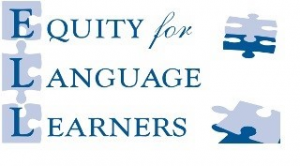 This year’s conference theme is perhaps our most ambitious yet. By bringing equity to the forefront, we reaffirm our commitment to our students by putting their needs first as we move firmly forward into the 21st century. It is also a conscious statement to support our students, our families, and our communities during uncertain and tumultuous times.
This year’s conference theme is perhaps our most ambitious yet. By bringing equity to the forefront, we reaffirm our commitment to our students by putting their needs first as we move firmly forward into the 21st century. It is also a conscious statement to support our students, our families, and our communities during uncertain and tumultuous times.
Equity begins in a name. Who are emergent bilinguals? Is this yet another term to learn? From LEP to ELL to EL. What’s next, just L? The term, emergent bilinguals, is a true reflection of who our students are and where they are on their language journey. It recognizes students’ native language development, validates their prior learning, and accepts students’ position on a fluid continuum towards biliteracy. Ofelia Garcia supported the use of the term emergent bilingual in her 2009 publication Emergent Bilinguals: What’s in a name? (TESOL Quarterly 2009). In her article, Garcia reminds us of what is most significant in using this term: It puts children first and reminds adults to maintain a child-centered approach to language development.
Equity-based issues related to emergent bilinguals are varied. As the planning efforts for the 2020 NJTESOL/NJBE begin, I invite you, our members, to submit proposals focused on this theme. To guide in this effort, I offer a list of topics from current research as it relates to equity matters surrounding emergent bilinguals:
|
|
These topics are suggestions to guide proposals. Please contact me directly if you have any questions about the submission process. I look forward to the 2020 NJTESOL/NJBE conference with great anticipation! References
García, O. 2009. Emergent bilinguals and TESOL. What´s in a Name? In TESOL Quarterly 43(2): 322-326. special issue edited by Shelley Taylor. Retrieved from https://ofeliagarciadotorg.files.wordpress.com/2011/02/emergentbilingualsand-tesol-whats-in-a-name.pdf
Garcia O., Kleifgen, J. A., & Falchi, L. (2008). From English Language Learners to Emergent Bilinguals. Retrieved from https://ofeliagarciadotorg.files.wordpress.com/2011/02/ell-to-eb.pdf
Hamman, L., Beck, M., & Donaldson, A. (2018). A Pedagogy of Translanguaging. Language Magazine. Retrieved from https://www.languagemagazine.com/2018/09/10/a-pedagogy-of-translanguaging/
Maggie Churchill is the Vice President and Conference Chair of NJTESOL/NJBE.
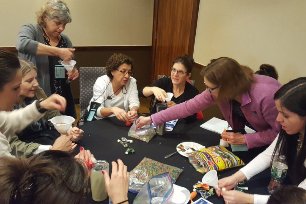
Past-President
Sharing is Caring – How to Submit a Proposal for the Uninitiated or Unsure
By JoAnne Negrin
Now that we are largely finished with that heavy lift of getting the school year off the ground, it’s time to start thinking about next May. Yes, you read that right…here at NJTESOL/NJBE, our Executive Board has already been planning the conference for months, and now we want to bring you in on the excitement!
Our members are the lifeblood of this organization. You are the ones who transform the organizational structure into a force for good across our state. You attend chapter meetings, post to the Hotlist, and are always learning and being vigilant on behalf of the communities we serve. You have offered yourselves up as resident experts in your school districts and other institutions where you may work. You go that extra mile to make students and families feel like the integral parts of their communities that they are.
Having spent nearly eight years as a supervisor in a large district, I will be the first one to admit that I don’t have all the answers, nor do I have all the expertise. I rely heavily on my team. I have my go-to people for things like community engagement, data use in the classroom, the nuts and bolts of how the curriculum works in specific grade levels, special education…no one brain could ever hold it all. That is why we work in teams! A good team of resident experts who aren’t afraid to share and learn can do anything.
What this means is that you are our resident experts. And, as resident experts, we would love it if you would share your knowledge with your peers by submitting a proposal for a workshop or poster session!
I’ve been involved in the adjudication process for the past seven years. During that time, I have helped many presenters sort through their thoughts and their doubts and create a successful submission. Here are some of the questions and doubts I’ve heard over the years, and my responses:
I’m afraid to get in front of people!
What is that you do for a living again? Oh, that’s right, stand in front of people! The only difference is that these people might be taller (that only holds true if you are an elementary teacher, though!)
I’m not an expert in the field.
Our keynote speakers, featured speakers, and some of our presenters are recognized experts in their field at the regional or national levels. However, the vast majority of our presenters are just like you – practitioners who see students every day, are confronted with a set of issues and have figured out some workarounds that help them do their jobs more effectively.
I have nothing to say!
You’d be surprised…most of you who have been doing this for a while have a few tricks up your sleeve. Ask yourself what it is that you do well. Are there things you’ve shared with peers locally that they have found helpful? What hacks have you devised to increase your effectiveness? What have you done that has made a difference for your students, peers, or families? What particular aspect of your practice do you geek out on? I would venture that most everyone has found a unique way to contribute. Let’s share our strengths!
What if people rip me to shreds?
There are certainly academic conferences where people play stump the presenter, but that does not tend to be the tone of this conference. Our conference is a practitioner-centered conference where sharing ideas is the goal, not establishing ourselves as the brightest bulb in the room!
I’m afraid to get up there by myself.
That, my friend, is why co-presenting was invented. Use the buddy system. Two people can register as co-presenters. If you want additional supporters in the room, they can attend your session and chime in as needed.
What’s the difference between a workshop and a poster session?
A workshop is, well, you know what that is. A poster session is more informal. You will have a visual (usually a poster, hence the name), and discuss your work informally with people as they walkthrough. It’s an excellent way to network, too. If I haven’t been able to convince you yet to do a workshop, a poster session is a great way to dip your big toe into the pool. It is also a suitable format for presenting graduate research. So you see, presenting at the Spring Conference isn’t scary at all! Your voice, your ideas, and your contribution will make the conference better and spread good ideas far and wide. Stepping forward to cover best practices can improve the education of students you will never meet.
JoAnne Negrin, Ed.D. is the Supervisor of ESL, Bilingual Education, World Languages, and Performing Arts for the Vineland Public Schools. She is Past President of NJTESOL/NJBE and current Chair of the NJPSA ELL Committee. She is the recipient of the 2019 NJPSA Visionary Leadership Award, Supervisor/Director.

Business Administrator: Gwen Franks
2020 Spring Conference Registration
Information is available on-line NOW!
Conference dates: Wednesday, May 27, Thursday, May 28 & Friday, May 29
Early Registration ends March 6, 2020
Regular registration ends May 1, 2020 (unless capacity is reached before this date)
For Information about the conference use the link below. https://njtesol-njbe.org/spring-conference/sp-conf-registration/
3 ways to register:
- Print out registration form and mail in with a personal check (keep in mind the RECEIVE BY dates)
- Print out registration form and mail in with an approved & signed purchase order (plan accordingly keeping in mind how long it will take for your district to process your request and PO as the RECEIVE BY dates are firm.) Approved PO and registration form must be mailed together.
- Pay on-line with a credit card or PayPal account.
NEW THIS YEAR: A one year NJTESOL/NJBE membership is now a gift of the organization to all PAID conference attendees. Yearly membership will start when registration is processed. If you are already a member, your membership will be extended for one year from your date of expiration. Helpful tips when registering:
- All registrations & payment (PO, personal check or credit card/PayPal) must be sent together. Registrations sent without payment or PO will not be processed or considered.
- If your registration fee is being paid by your district with a purchase order, PLEASE, PLEASE, PLEASE follow up with your district as of the status of your registration & PO. DO NOT ASSUME that it has been sent in by your district! Your confirmation from NJTESOL/NJBE is the key!
- Dates and rates are firm. Please plan accordingly to account for school processing and regular mail. Keep in mind the time it takes for your district to approve your request to attend the conference when filling out the registration form. Early registration ends March 6th and regular registration ends May 1st (unless capacity is reached before May 1st). These are RECEIVE BY dates.
- Those who supply a legible & valid email address on the registration form will be receive an email from gfranks@njtesol-njbe.org confirming your registration once it is received and processed.
- No Fax or Email Registrations Accepted.
- Splitting a two and/or three-day registration is not permitted.
- You must attend on the day(s) you are registered for.
- $40 Processing fee for cancellations – No cancellations/refunds after May 1, 2020. (All cancellations must be in writing and sent to gfranks@njtesol-njbe.org by May 1st.)
- $25 Fee for changes in payment processing.
- THERE WILL BE NO ON-SITE REGISTRATION.
- Do not wait until the 1st week of May to check on the status of your registration. It will be too late!
LOOK FOR YOUR CONFIRMATION – Please read it carefully & completely.
Business Administrator: Gwen Franks
NJTESOL/NJBE Membership
 Benefits of being a current member:
Benefits of being a current member:
• Participate in the hotlist – is an e-mail discussion list through which subscribers can read about employment opportunities, workshop and conference announcements, questions about state laws and standards, advice, best practices, material searches, testing questions, and advocacy.
• Receive the quarterly online Voices newsletter – stay informed about the latest issues, news, and happenings in bilingual, dual language, and ESL education in our state
***New: A one year NJTESOL/NJBE membership is now a gift of the organization to all PAID conference attendees. Yearly membership will start when conference payment is received (personal check, approved & signed purchase order or online payment) & registration is processed. If you are already a current member, your membership will be extended for one year from your date of expiration.
If you are not able to attend the 2020 spring conference or need to renew/join now use the following link: https://njtesol-njbe.org/membership/
Business Administrator, Gwen Franks
CALL FOR POSTER SESSIONS
Spring Conference 2020, May 27, 28 & 29 Hyatt Regency Hotel, New Brunswick
Equity for Language Learners
NJTESOL-NJBE invites its membership to submit a Poster Session proposal 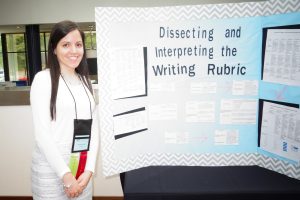 for the 2020 Spring Conference. A poster session is a visual representation of a best practice, successful activity, or researched evaluation. A poster session includes, but is not limited to, a large tri-fold or poster-like display. Student work, samples, and artifacts are highly encouraged. (Please note: All posters must stand on their own as there is no wall to attach them to.)
for the 2020 Spring Conference. A poster session is a visual representation of a best practice, successful activity, or researched evaluation. A poster session includes, but is not limited to, a large tri-fold or poster-like display. Student work, samples, and artifacts are highly encouraged. (Please note: All posters must stand on their own as there is no wall to attach them to.)
Make a visual representation of your best practice and present it for small groups of attendees in the Poster Session area of the conference. This is a wonderful opportunity for you to present for the first time at the Spring Conference.
So, if you have a great idea that you would love to share with your colleagues or need more information, use the following link:
https://njtesol-njbe.org/spring-conference/posters/

Socio-Political Representative
Advocacy Corner
By Elizabeth (BJ) Franks
In this time of uncertainty for many of our students and their families, it is critical that we know the current information and know where to direct families for help. Becoming active and staying informed can help us to feel that we are contributing to the solution and not the problem. NJTESOL/NJBE advocates on several levels. On September 4, Diane Lagattuta testified in front of the State Board of Education on behalf of NJTESOL/NJBE. The theme of the testimony matched the theme established by the NJ Department of Education – Equity – we added Equity and ELs. You can access the testimony through this link https://njtesol-njbe.org/wp-content/uploads/2019/09/TestimonySept2019.pdf.
Our Advocacy home page has a list of all of our recent testimony, position papers and statements.
On October 12, there will be an Advocacy Summit at Rutgers GSE in New Brunswick. We hope many people can join us to learn the current policies in place and find ways to support our children.
Other issues that we are involved in include:
- Increasing ELs’ Participation in the Seal of Biliteracy
- Collaborating with FLENJ to create Pathways to Biliteracy
- Lobbying for state colleges to grant college credit for the attainment of the Seal of Biliteracy
- Developing a pathway to develop certified bilingual teachers by working with Teacher Education programs and piloting an Early Childhood Academy with Seal of Biliteracy.
- Collaborating with the NJ Literacy Association to update the position paper • Lobbying for Preschool expansion programs to address dual language learners
- Continuing to ask the NJDOE and state legislators to develop guidelines for ELs and Special Education
- Better advocating for Students with Interrupted Formal Education (SIFE) and the services that they do or don’t receive
Legislation:
- A-2437 establishes a grant program for Dual language Immersion and will provide funding for districts to establish and develop Dual Language Education.
- Federally, Reach English Learners Act was reintroduced (HR1153) that will establish a grant program to fund certifying more teachers to work with ELs. We have NO NJ legislators as co-sponsors. Please write to your Representative and Senators and urge them to co-sponsor the bill. Let them know that the EL population in NJ is growing and we need more ESL certified and Bilingual certified teachers. Check https://njtesol-njbe.org/advocacy/ for contact information.
- Another bill has been in Committee HR1239 World Language Advancement and Readiness Act of 2019. The Secretary of Defense, in consultation with the Director of National Intelligence and the Secretary of Education, shall carry out a program … [to offer] grants, … to State educational agencies and local educational agencies to share of the cost of innovative model programs providing for the establishment, improvement, or expansion of world language study for elementary school and secondary school students.
Please stay connected and informed so you can advocate for your learners in your school environment~ Si se puede!
Elizabeth Franks is the Advocacy Representative of NJTESOL/NJBE.

Exhibitor Liaison
Responsible Teaching
By Tina Kern
Today we learned about “culturally responsive teaching”. To kick off this initiative during staff development we read an article, “Understanding Culturally Responsive Teaching” (https://education.cu-portland.edu/blog/leaders-link/culturally-responsive-teaching-strategies/ ). We learned about the four different styles of teaching, the “warm demander”, the “technocrat”, the “sentimentalist’, and the “elitist”. Then we saw a video (https://www.youtube.com/watch?time_continue=245&v=uV36efjBKRU). I listened carefully and considered how this would inform my teaching this year. What kind of teacher am I? What kind of teachers did I encounter during my educational years?
When I got home, I reflected upon this year’s focus, and teaching in general. I thought about ways to describe the teaching I have embraced. How about responsive teaching or, even better, responsible teaching. In our world of “new” techniques and tools, various “buzz” words such as restorative discipline, student engagement, learning sciences, culture of inquiry, and so on, we embrace any and all that maximize our teaching for the benefit of our students. But doesn’t it all boil down to being a responsive and responsible teacher?
It wasn’t always that way in education. The “culture” from many years ago wasn’t “tough love”; it was just “tough”. I remember clearly how my teachers’ expectations always included memorization, and strict adherence to their rules (the elitist” style of teaching). “Building relationships” was not a goal. When I was a student, I thought that my teachers were always teachers, and could not have had families. To where did they disappear during the summer? Did they have a first name? (Was it mister, or misses???) It seemed that teachers stood in front of the class as absolute rulers and holders of knowledge, and we were obligated to sit and absorb the knowledge in the way that it was presented. I still remember being bored from the drone of the history teacher’s repetition of material. I had the audacity to look out the window as my mind wandered. The teacher asked me a question, and I turned slowly, blinked a few times, and answered correctly. My teacher stared at me with a half-smile, and rather than differentiate by presenting me with different material, just left me alone the rest of the year. Also, though my school wanted to have me skip a grade, the mentality of my parents, rooted deeply in our background, rejected a deviation from my traditional path of life. There were no alternatives, as we have now.
I also remember that if there were any problems at school, if I was unfortunate enough that a teacher called my house to speak to my parents, I would receive strict punishment from my parents without a chance to explain. Clearly, my experiences in school were not “responsive”.
Teaching today is eons away from some of the patterns of the past. I look forward to our progress and innovations as we build relationships with our students for optimum teaching. In fact, I don’t think I could be in my present position teaching recent arrivals without learning how invaluable it is to create an atmosphere in the classroom of trust, acceptance, and mutual respect because these imperatives precede the acceptance of knowledge and all that you have to teach to your students.
This essential and vital key to starting the school year positively is one of the most valuable lessons a teacher can embrace. I know because, since I have been at the high school I have had to develop patience beyond my wildest dreams, and compassion deeper than any chasm in order to be a responsible and responsive teacher. My students have endured hardships and horrors beyond anything that I could have imagined. They left their homes, running away from danger to suffer more danger in order to cross to safety here. They had to find even more courage to sustain them as they searched for their mother – the mother that left them in the care of a grandmother, grandfather, aunt, uncle or friend, thinking that they were securing a good future for their child. Unfortunately, circumstances in their home countries created the opposite result.
So now, these incredibly courageous and incredibly traumatized young adults finally reunited with their family here in New Jersey, only to find that their journey had not really ended, but just began again. Here was a new family, as many mothers remarried and had young children. Here was a new culture. Here was a new language. Here was a new school. Here we enter the picture and try to ease the educational tensions of their new life by welcoming them into the school environment with caring, and lessons beyond education, that will help make their journey a successful one.
I know that I am on the right path. The most incredible moment of my life was, when, being introduced at the ESL/bilingual student meeting we have at the beginning of the school year, I stood up, and as I stood, I received claps and cheers from our students. I knew I had connected with them, and will make a difference in their lives. This brought me to the night before school when, as always, I was nervous about starting another school year.
A pile of worries kept me up at night: my new students, my new colleagues, my environment, my lessons, GCN training, lesson planning, curriculum, and many others swirled around my conscious and unconscious mind. That afternoon I had seen a little girl with her mother in the store. She was pensive and thoughtful about choosing her supplies, as her mother clutched the teacher’s list in her hands. I, too, was searching for some classroom supplies. She seemed nervous, but she smiled at me when I asked what grade she was in. “Kindergarten,” she responded with a shy smile.
I smiled back at her and her mother. “I’m a teacher,” I said, “and I have a secret.” I paused. “Teachers are also a little nervous the first day of school.” Her face brightened, and I felt a little better, too.
I worry about my new students before they file into my class, before they share their fears, and show their vulnerability, or try to hide defensively behind their mask. I value the moments I share with my students. I value the nuggets and secrets they sometimes shyly or painfully divulge in a second of vulnerability when I sit with them at their tables. This is never teaching time lost, but gained and multiplied as we built those relationships and trust.
I always wanted to be a teacher. When I went through the years of my own education, I dreamed about a better way to reach students, to gain information and foster curiosity, to give everyone the opportunity to learn and reach goals. So as we continue and the months pass, we ask ourselves, what kind of teacher am I? How am I responsive to my students? How am I being responsible and making a positive difference?
I look forward to sharing with you this year. I am your Exhibitor Liaison and can give you referrals to our supportive sponsors and exhibitors that can help you by sharing what materials, technology, etc. they have to supercharge your teaching.
I wish you the best year ever!
WIDA Representative
The Importance of Teaching Difficult History
By Sonya Bertini
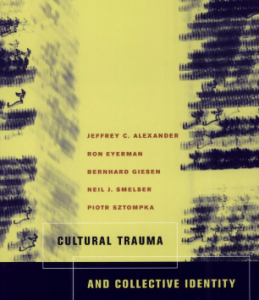 On July 30th, I attended the United Jewish Federation of Tidewater 14th Biennial Educators’ Conference in Norfolk, Virginia. This was the third time I had participated. This year the conference title was Teaching Difficult History: How the Past Informs Our Present. Dr. Maia Sheppard, a professor at George Washington University, presented on the importance of teaching the Holocaust in particular. According to her, we should teach the Holocaust because learning about other’s past suffering helps us make decisions about how to act now and in the future. Dr. Sheppard referenced a quote by Debora Britzman of New York University “Our pedagogical efforts must begin with a study of the difficulty of making significance from the painful experience of others.” Dr. Jeremy Stoddard, associate professor at the University of Wisconsin School of Education, presented on teaching “difficult history” through film and Dr. Jeff Eargle, professor at the University of South Carolina School of Education, spoke about using graphic novels for the same purpose.
On July 30th, I attended the United Jewish Federation of Tidewater 14th Biennial Educators’ Conference in Norfolk, Virginia. This was the third time I had participated. This year the conference title was Teaching Difficult History: How the Past Informs Our Present. Dr. Maia Sheppard, a professor at George Washington University, presented on the importance of teaching the Holocaust in particular. According to her, we should teach the Holocaust because learning about other’s past suffering helps us make decisions about how to act now and in the future. Dr. Sheppard referenced a quote by Debora Britzman of New York University “Our pedagogical efforts must begin with a study of the difficulty of making significance from the painful experience of others.” Dr. Jeremy Stoddard, associate professor at the University of Wisconsin School of Education, presented on teaching “difficult history” through film and Dr. Jeff Eargle, professor at the University of South Carolina School of Education, spoke about using graphic novels for the same purpose.
I found the conference to be timely and very practical. I feel that many of our English language learners are presently living through a difficult time in history and this may be having an impact on their learning experience. They can’t help but notice the divisiveness around them – the insults hurled at immigrants, the mass shootings, the war of words waged on social media, the devastating consequences of global warming, and an unfortunate etcetera. This is their reality, and I believe it needs to be addressed through relevant, grade-appropriate curriculum which allows them to make connections to their own experience. Teaching “difficult history” – such as the Holocaust, the Rwandan genocide, the Native American experience, slavery, police brutality, etc. – can lead to thoughts, ideas, connections that might not otherwise be provoked. In my experience, what makes teaching “difficult history” difficult is that it triggers emotions that we as teachers may not know what to do with. Just yesterday, upon reading an article on police brutality in the last three years, one of my 11th-grade students said: “Miss, this is all just so hard, so horrible.” She is right; it is. But it needs to be talked about because it creates both empathy and tolerance not only in the classroom but hopefully outside as well.
In the words of the historian Dominick LaCapra, “opening oneself to empathetic unsettlement is a desirable affective dimension of inquiry which complements and supplements empirical research and analysis.”The issues are sensitive and sometimes even explosive, but if handled properly with the focus always being on educating and informing rather than persuading or convincing, the teaching of “difficult history” is essential, beneficial and relevant. Bear in mind that in 1994, Governor Whitman signed into law an act requiring education on the Holocaust and genocide in both elementary and secondary education in New Jersey. “The law indicates that issues of bias, prejudice, and bigotry, including bullying through the teaching of the Holocaust and genocide, shall be included for all children from K-12th grade.” (N.J.S.A. 18A: 35-28) As teachers of English language learners we are not off the hook then. We have an obligation and an opportunity to incorporate these difficult themes in our teaching through literature which inspires meaningful discussion while addressing the standards. I am including a list of books that can be used in the classroom that I was given at the conference. I will also highlight books I personally have used to successfully address the Holocaust and more recently racism and police brutality. In closing I will leave you with the words of Jeffrey Alexander, “Is the suffering of others also our own? In thinking that it might in fact be, societies expand the circle of the we.” (Cultural Trauma and Collective Identity, 2004.)
Books I have used:
- In My Hands – Irene Gut Opdyke (memoir)
- Salvaged Pages – Alexandra Zapruder (compilation of children’s diaries)
- The Book Thief – Markus Zusak
- Number the Stars – Lois Lowry
- Night – Elie Wiesel
- The Hate U Give – Angie Thomas
Books recommended at the UJFT Conference:
- In the Shadow of the Swastika by Hermann Wygoda (memoir)
- Lily Renee, Escape Artist by Trina Robbins (graphic novel)
- The Librarian of Auschwitz by Antonio Iturbe (novel)
- We Will Not Be Silent: The White Rose Student Resistance Movement
- That Defied Adolf Hitler by Russell Freedman (history of the white rose – Middle Schools)
- A Good Place to Hide by Peter Grose (story of le Chambon, France – High Schools)
- The Boys Who Challenged Hitler: Knud Pedersen and the Churchill Club by Phillip Hoose (memoir)
- Restitution – Kathy Kacer (story of recovering lost art – High School)
- On Hitler’s Mountain – Irmagard A. Hunt (memoir – Middle School)
- Parallel Journeys – Eleanor Ayer (two memoirs weaved together)
- Salvaged Pages – Alexandra Zapruder (compilation of children’s diaries)
- Hitler Youth – Susan Campbell Bartoletti (resource book)
- In Search of the White Rose (DVD)
- The Book Thief – Marcus Zusak (novel)
- The Boy on the Wooden Box – Leon Leyson (memoir)
- In My Hands – Irene Gut Opdyke (memoir)
- Misa’s Fugue (DVD) (Frank Grunwald bio-pic)
- Beyond Courage – Doreen Rappaport (Jewish Resistance)
- Yossel – Joe Kubert (graphic novel)
- Black Radishes – Susan Lynn Meyer (novel)
- Sevek and the Holocaust – Sidney Finkel (memoir)
- Lost Youth – David Katz (memoir)
- My Name is Anne Too – Anne Friedman (memoir)
- Your Name is Renee – Ruth Hartz (memoir)
- Escape: Children of the Holocaust Alan Zullo (Scholastic compilation with David Katz’s story)
- Heroes of the Holocaust – Alan Zullo (Scholastic compilation)
- Tell them We Remember: The Story of the Holocaust – Susan Bachrach
- Six Million Paper Clips – Peter Schroeder and Dagmar Schroeder Hildebrand
- Good Trouble Lessons from the Civil Rights Playbook – Christopher Noxon (graphic novel)
- March (Trilogy) – John Lewis, Andrew Aydin and Nate Powel (graphic novel about Civil Rights movement)
- They Called us Enemy– George Takei (graphic memoir about the author’s confinement in an American camp during WWII)
- Anne Frank’s Diary The Graphic Adaptation – Ari Folman
References https://www.jewishnewsva.org/holocaust-commissions-14th-biennial-educators-conference-teaching-difficult-history-how-our-past-informs-our-present/ Retrieved on September 17, 2019.
Sonya Bertini is the WIDA Representative for NJTESOL-NJBE. She is also a Special Education Bilingual Teacher at Vineland High School in Vineland NJ

Technology Coordinator
Favorite Websites: Looking back to find what’s new
By Marilyn Pongracz
The online world is always changing. The author of last year’s review of Typing Club, Katherine Ware, a library, media, and technology specialist, told me that the program has added more features and is better than ever.
A quick search about Typing Club brought me to another site that I reviewed in 2013, Common Sense Media. There, I found a full review, teacher reviews, a brief video, pros, cons, standards, screen shots, and a privacy rating.
Typing Club is described as a fun, engaging, interactive program for K-12 that has added digital citizenship and good computer habits as video complements to the program. ELs can learn language along with typing. Tests are designed to check students’ progress and guide what they need to practice. Progress can be monitored by teachers and students. The program is easy to customize. It has also expanded to include Spanish, Dutch, French, Italian, Portuguese, Slovakian, Russian, and Chinese and is adding more. Jungle Junior is a separate component of the program for students in Kindergarten and first grade who are learning to read. Two main drawbacks of the program are that without supervision, students may resort to two-finger typing, and while data is not shared, there is advertising and limitations in the free version.
Looking back at my 2013 review, I found another site that has expanded its scope. Teach Thought is a blog for teachers on a broad-range of topics from classroom management to best teaching practices, including technology collaboration tools, implementing STEAM, digital citizenship and more. There is also PD available for schools to purchase in addition to a free newsletter.
What was Graphite, the section of Common Sense Media for teachers, is now one site with separate tabs for parents, educators, and advocates. Teachers can search by media type: games, apps, or websites, as well as subjects and grades, and by cost – free, free to try, or paid. Searches can also be refined by platform, purpose, and skills. Other places to start are the “Top Picks” and the blog. There are some resources in Spanish and the K–12 Digital Citizenship Curriculum has just been updated. The educator section of the site also has some professional development and advice. Teachers have the option to bookmark the resources that they choose. Parents can check rated of lists videos, movies, TV shows, books, and music. There are also “Best Apps” and “Top Picks.” Searches can be narrowed by age, subjects, skills, genre, topics, and educational ratings.
If you are looking for new technology, Common Sense Media is a good place to start.
Marilyn Pongracz is the Technology Coordinator for NJTESOL/NJBE and the English Language Resource Center Supervisor at Bergen Community College.
Guest Contributor
What does “of” mean?
By Jeffrey Linn
 I could list several good reasons why educators should carefully scrutinize word meanings before presenting words in instruction. The main one being: We don’t. Especially if English is our first language. We achieved mastery of the small but powerful nuances of core vocabulary meanings often before we entered school. So, why look up the word? Why think about its meaning? Because, obviously, we need to be able to tell someone else how to use it. Have you ever investigated the meaning of “of,” for example? Are you able to confidently explain the use of the word to a struggling student without resorting to unhelpful teacher phrases such as:
I could list several good reasons why educators should carefully scrutinize word meanings before presenting words in instruction. The main one being: We don’t. Especially if English is our first language. We achieved mastery of the small but powerful nuances of core vocabulary meanings often before we entered school. So, why look up the word? Why think about its meaning? Because, obviously, we need to be able to tell someone else how to use it. Have you ever investigated the meaning of “of,” for example? Are you able to confidently explain the use of the word to a struggling student without resorting to unhelpful teacher phrases such as:
- “It’s idiomatic.”
- “You just have to memorize it.”
- “You’ll get it over time.’
“Of” comes from the Proto Indo-European root *apo- “off, away.” So, we might think about the meaning of “of” functioning like: a piece of cake This meaning of “of,” which we might phrase as “the whole follows,” is highly productive:
- a slice of pizza
- a can of peas
- a box of cookies
- a liter of soda
- and on and on.
But “the whole follows” is not applicable to many usages of “of”. Below, “the type follows” has been substituted for every example sentence* from the Google definition of “of”:
- “the sleeve the type follows his coat”
- “an increase the type follows 5 percent”
- “a boy the type follows 15″
- “the son the type follows a friend”
- “the plays the type follows Shakespeare”
- “north the type follows Chicago”
- “the city the type follows Prague”
- “the arrival the type follows the police”
- “the firing the type follows the employees”
- “it was kind the type follows you to ask”
- “I don’t know the type follows anything that would be suitable”
- “it smelled the type follows rotten eggs”
- “the house was built the type follows bricks”
- “it would be just a quarter the type follows three in New York”
For most of these cases, some extrapolation of “the type follows”, in the context of the other words used, makes sense. For some it is admittedly a stretch. For a couple, it is not helpful at all to try to apply this meaning. But using “the type follows” as a base meaning for “of” may limit the amount of exceptions that have to be learned and help to de-mystify the usage of the word for English language learners. * Two of these were sweetened up because they were a bit grim.
Reference: https://www.etymonline.com/search?q=of

 See our 2019 Special Interest Groups Pages
See our 2019 Special Interest Groups Pages